Joining CPTPP not only helps businesses increase footwear export turnover but also expands the source of imported raw materials for production to enjoy incentives.
Double your chances
Footwear is one of the industries that benefits the most from the incentives in the Comprehensive and Progressive Agreement for Trans-Pacific Partnership (CPTPP) and from the UK's accession to this agreement.
Ms. Phan Thi Thanh Xuan - Vice President and General Secretary of the Vietnam Leather, Footwear and Handbag Association said that the UK is currently a key export market for the leather and footwear industry with an export turnover of hundreds of millions of USD each year. From 2020 to the end of 2024, the export turnover of leather and footwear to the UK has doubled.
 |
| Ms. Phan Thi Thanh Xuan - Vice President and General Secretary of Vietnam Leather, Footwear and Handbag Association |
If in 2020, the export turnover of leather and footwear to the UK only reached 577 million USD including footwear and handbags, by 2024, this figure had reached more than 1.1 billion USD, an increase of 23% compared to 2023. This increase is higher than the increase of the whole industry compared to 2023.
Thus, this growth rate has affirmed that Vietnamese footwear and handbag products are favored and welcomed by British consumers, thereby contributing to affirming the position of Vietnamese goods in the world market.
Up to this point, it can be affirmed that up to 90% of exported footwear and handbags have been taking advantage of the incentives from the Vietnam - United Kingdom of Great Britain and Northern Ireland Free Trade Agreement (UKVFTA). And the UK's accession to the CPTPP not only does not create barriers but has also brought more advantages and opportunities for domestic footwear and handbag businesses.
Firstly, domestic enterprises have been doing a good job with procedures to take advantage of incentives from CPTPP to export to member countries in the Agreement. Adding the UK market, enterprises can take advantage of available procedures, thus saving costs, time and administrative procedures.
Next, leather, footwear and handbag businesses have more opportunities to expand the supply of raw materials from member countries, including the UK, for production and export within the CPTPP bloc.
Proactively conquer high standards, approaching sustainable goals
The market opportunities when the UK joins CPTPP are very clear for the leather and footwear industry, however, according to Ms. Phan Thi Thanh Xuan, the CPTPP or UKVFTA are both new generation free trade agreements, therefore, requiring exporting countries and exporting enterprises to improve their internal capacity. In particular, enterprises need to pay attention to environmental and labor provisions... to meet the sustainable development criteria in the agreements.
Green production, social responsibility or sustainable development are important keywords that are always mentioned by footwear enterprises and experts when discussing the long journey for the industry's exports. This issue is becoming increasingly "hot" as many countries that import large amounts of footwear and handbags have put forth a series of new requirements for importing products that are socially and environmentally responsible.
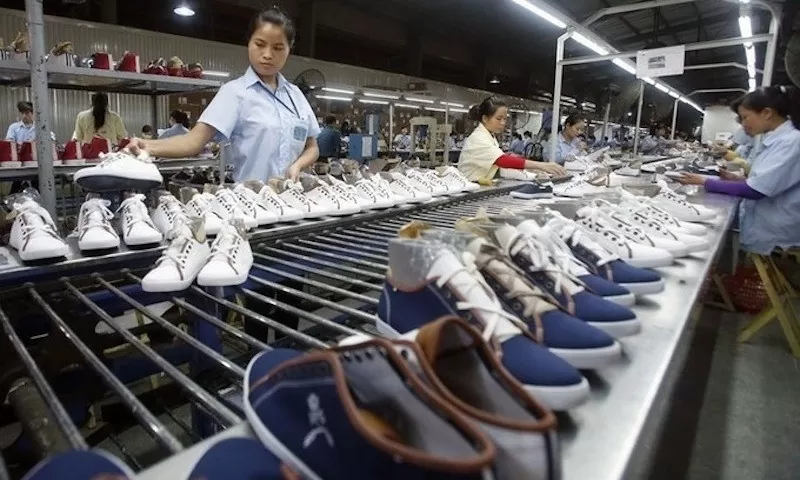 |
| Meeting green standards and sustainable development is an irreversible trend for leather and footwear manufacturing enterprises. Illustrative photo |
The EU is a case in point, with its green manufacturing, carbon emission reduction regulations setting higher standards for market access, while adding complex accountability obligations for manufacturers and supply chains.
Ms. Phan Thi Thanh Xuan said that if in the past, sustainable development was only an encouraged criterion to be applied to enhance the competitive advantage of brands, today it has become a mandatory trend and is legalized.
This is clearly demonstrated through a series of EU laws and policies that have been enacted and implemented, such as supply chain due diligence, anti-deforestation policies, emissions inventories and carbon border adjustment mechanisms.
These policies are currently focused on large-scale implementation, but that does not mean that small and medium-sized enterprises will not be affected. Next are some policies being discussed such as eco-design, broad producer responsibility laws, etc.
For the EU, the UK or the CPTPP market, green standards are a very "hot" issue and an irreversible trend. " The current problem is that while policy makers in the export market are working hard, information to businesses is still very limited ," the leader of the Vietnam Leather, Footwear and Handbag Association worried.
At the same time, as standards become higher, businesses' compliance costs become higher and higher, and these costs do not serve to improve product quality but to carry out many overlapping procedures.
In that context, Ms. Phan Thi Thanh Xuan emphasized that compliance is mandatory if you do not want to be pushed out of the supply chain. Therefore, businesses should not wait for customers to request but should proactively change technology, digitally transform, improve the quality of human resources, and meet green production requirements to create competitive advantages for products and brands.
Quickly improve and make transparent information about the product supply chain starting from raw materials, sustainable production towards circular economy, ensuring responsibility towards society and the environment.
On the part of state management agencies, it is necessary to streamline specialized management units to reduce time and costs for businesses.
| From 2020-2024, Vietnam's footwear export turnover to the UK will double. With the UK joining the CPTPP, it is expected that Vietnam will further expand this number. |
Source: https://congthuong.vn/anh-gia-nhap-cptpp-them-co-hoi-cho-xuat-khau-da-giay-374739.html








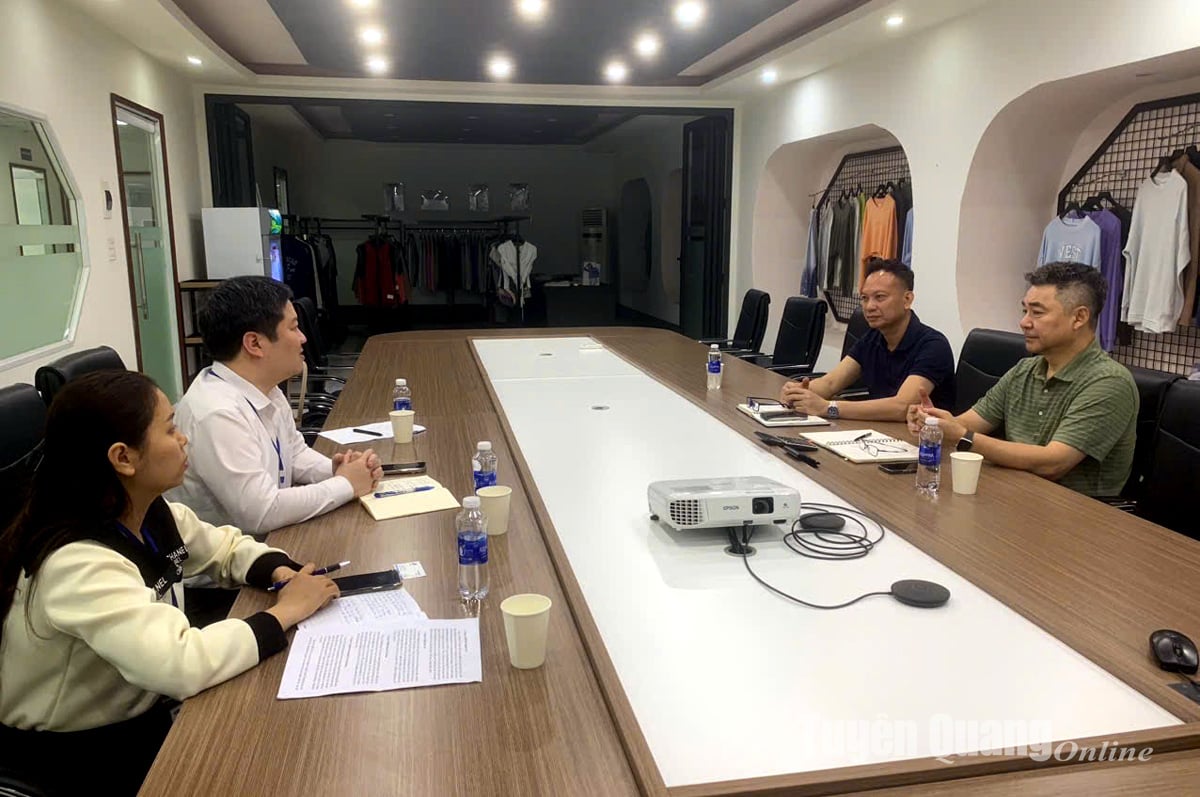

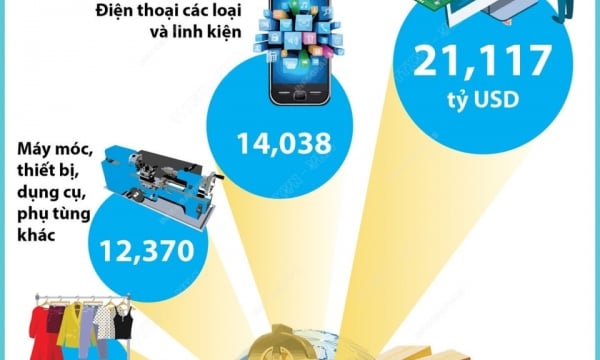
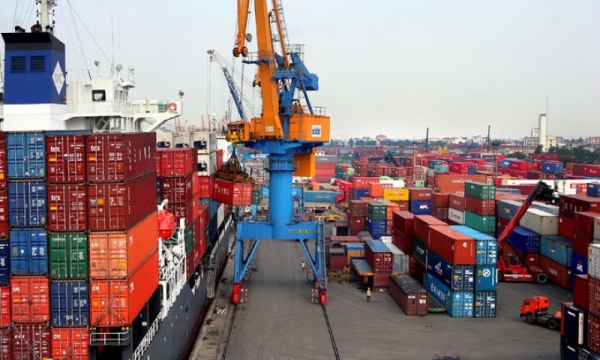
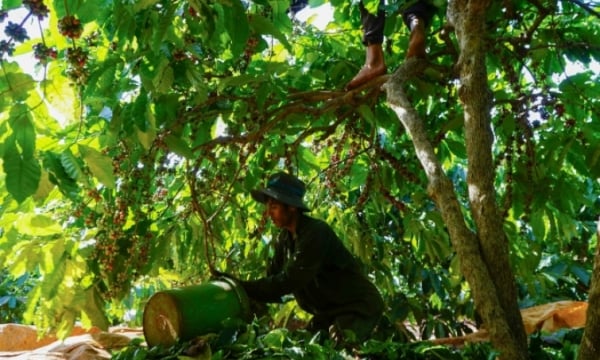

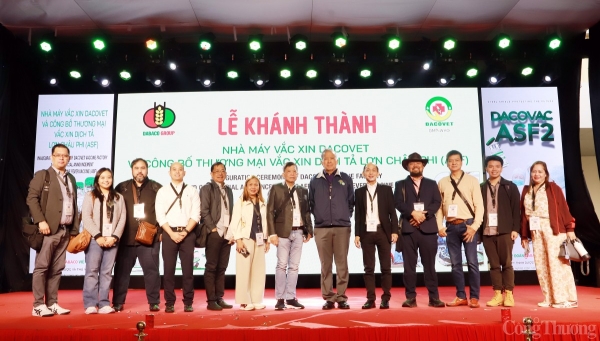





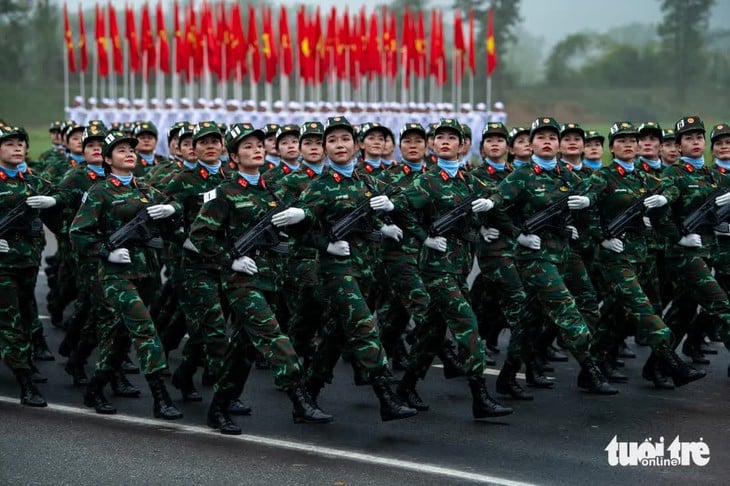




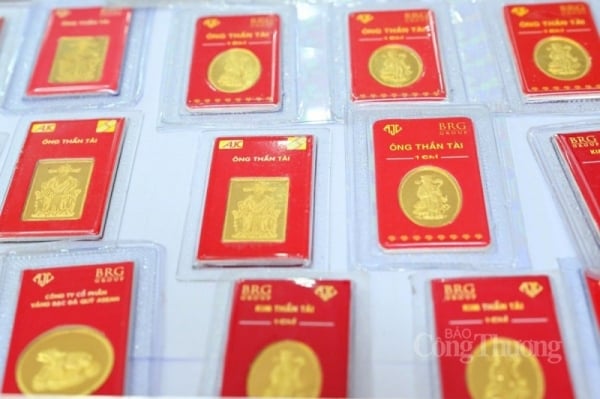


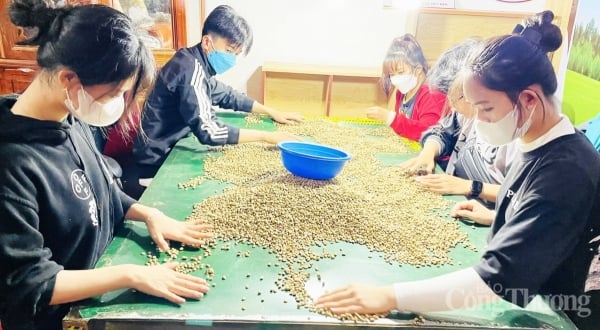
![[Photo] Visiting Cu Chi Tunnels - a heroic underground feat](https://vstatic.vietnam.vn/vietnam/resource/IMAGE/2025/4/8/06cb489403514b878768dd7262daba0b)










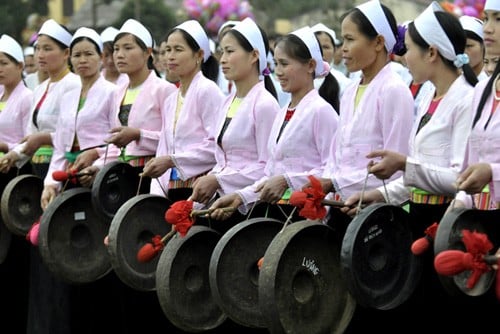




















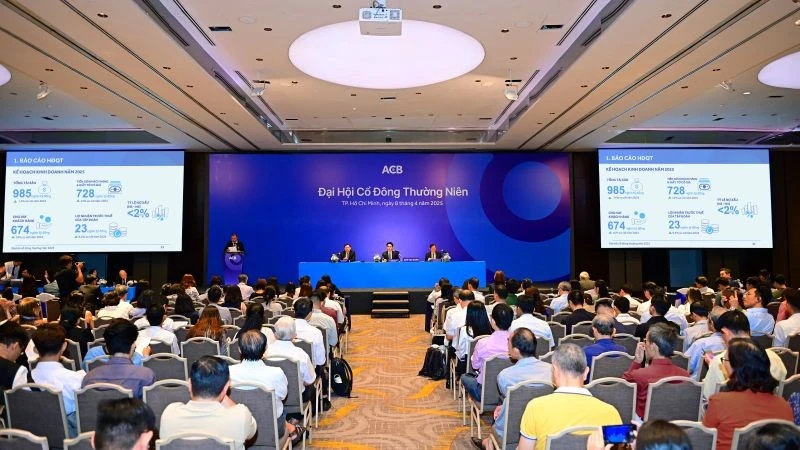





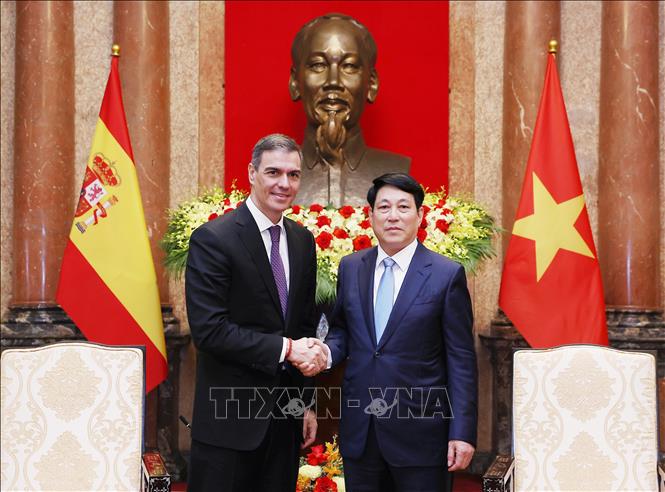
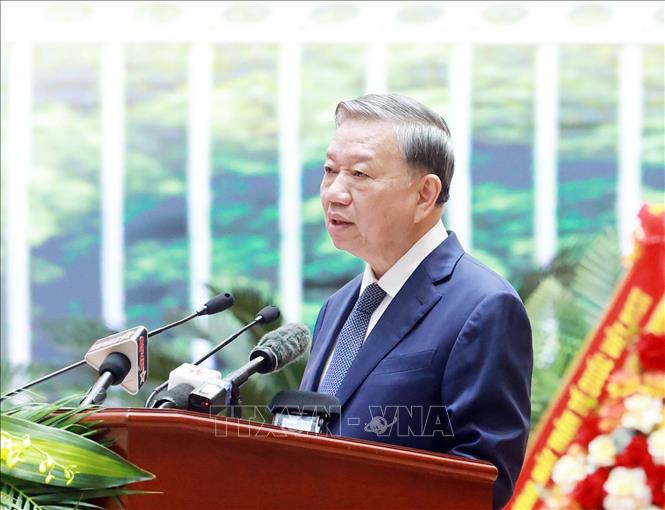








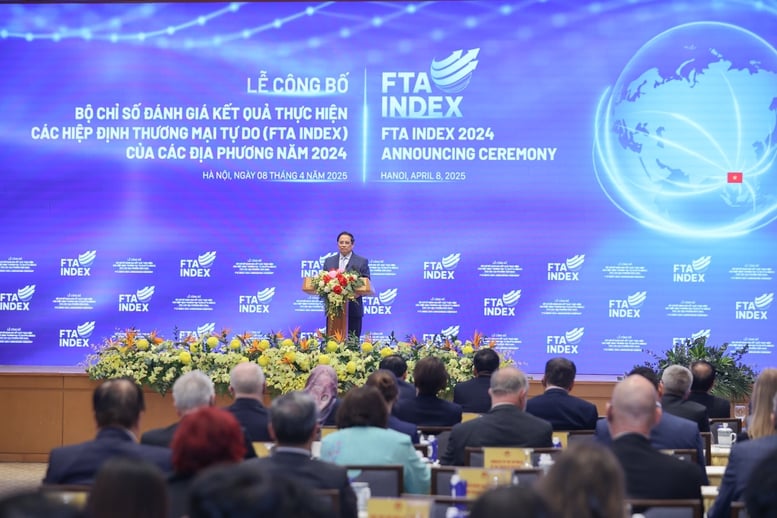


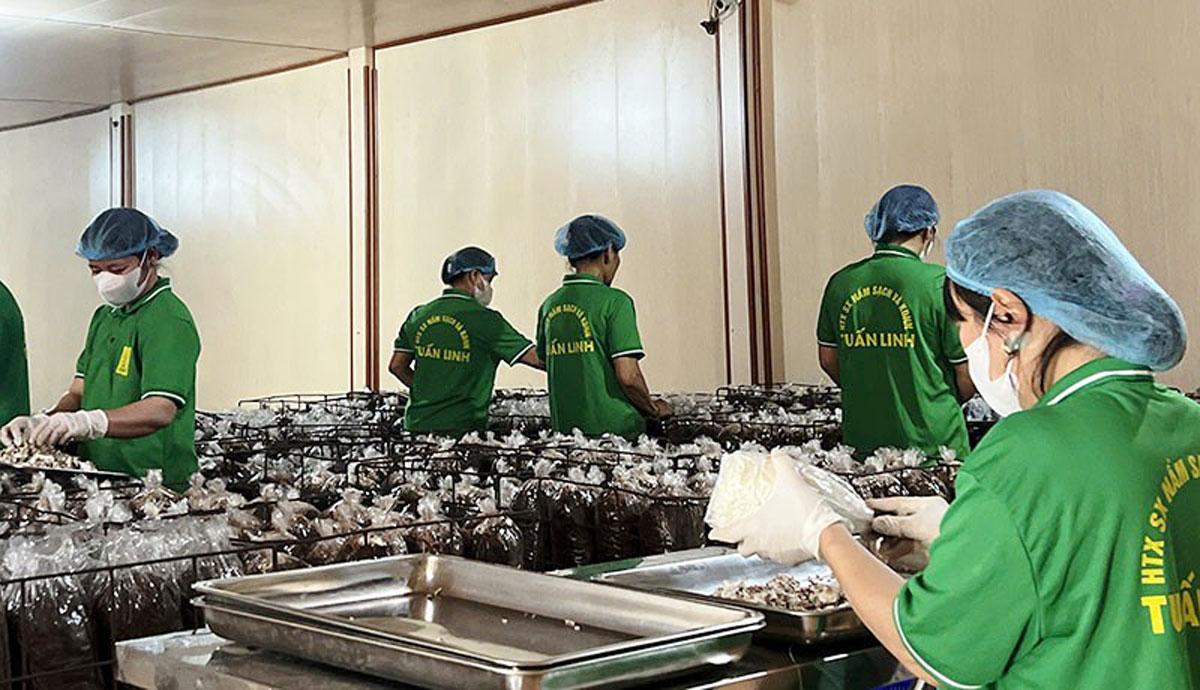

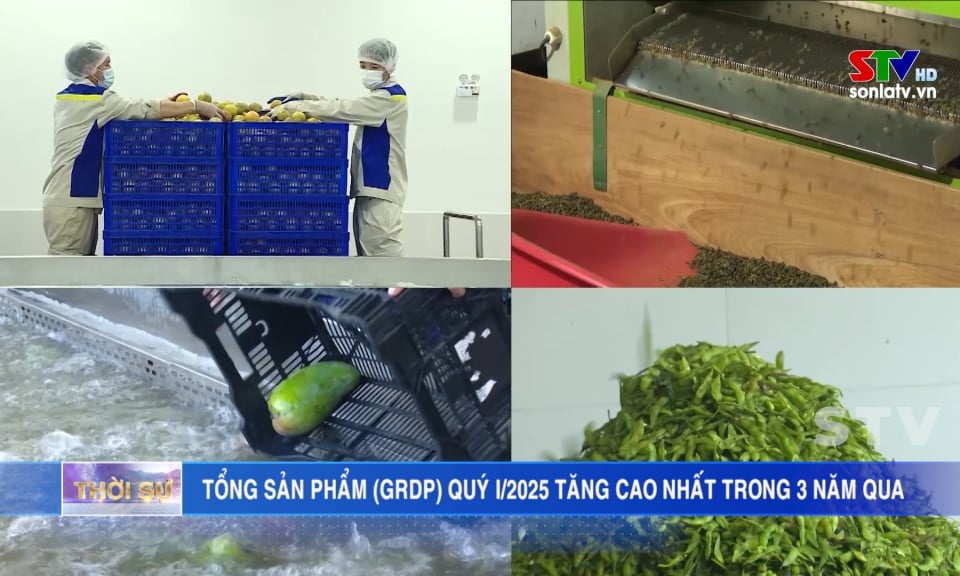








Comment (0)